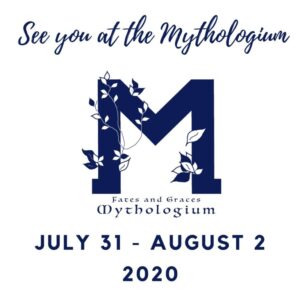This year I will be leading a community of mythologists in a conversation on decolonizing mythology.
Abstract of my presentation
Often times as mythologists, a narrative or an image enchants us and we forget that mythic artifacts do not exist in isolation but are embedded in human culture with all the problematics that entails. This discussion starter aims to reveal issues, problems, and potential methods for decolonizing our field. As a field of inquiry, Mythology comes into existence during the cultural juxtapositions created by colonialism during the eighteenth and nineteenth centuries. The colonized became objects of study for Europeans, who documented the cultural habits, sacred beliefs, arts, and other cultural artifacts of non-European cultures even as the Europeans strove to Westernize and destroy these cultures. In many instances, the mythic artifacts mythologists explore come from the ongoing exploration of native people, people from non-Western backgrounds, and other marginalized cultures. I intend to provide a brief background on the theoretical work by Faye V. Harrison on decolonizing anthropology, David Miller on mythoclasim, and Joel P. Christensen on decolonizing a myth class for what I hope will be a brainstorming session using the Kumeyaay Birds Songs as our mythic artifact and addressing the problematics inherent in my own mythic exploration of this tradition.
Fates and Graces 2020 Mythologium
The Mythologium is a two-and-a-half day conference and retreat for mythologists and mythop hiles. Scholars of mythology present their work and spark inspiration through panels, presentations, and social gatherings. Think Plato’s symposium meets mythological studies. A gymnasium for the mythic mind taking place July 31 – August 2, 2020 online.
hiles. Scholars of mythology present their work and spark inspiration through panels, presentations, and social gatherings. Think Plato’s symposium meets mythological studies. A gymnasium for the mythic mind taking place July 31 – August 2, 2020 online.
Learn more at Mythologium Conference 2020